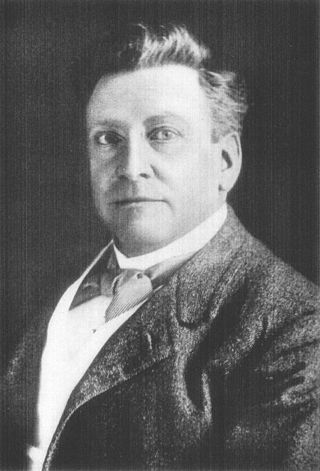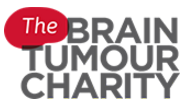Related Research Articles

The Department of Health and Social Care (DHSC) is a department of His Majesty's Government responsible for government policy on health and adult social care matters in England, along with a few elements of the same matters which are not otherwise devolved to the Scottish Government, Welsh Government or Northern Ireland Executive. It oversees the English National Health Service (NHS). The department is led by the Secretary of State for Health and Social Care with three ministers of state and three parliamentary under-secretaries of state.

Cancer Research UK (CRUK) is the world's largest independent cancer research organisation. It is registered as a charity in the United Kingdom and Isle of Man, and was formed on 4 February 2002 by the merger of The Cancer Research Campaign and the Imperial Cancer Research Fund. Cancer Research UK conducts research using both its own staff and grant-funded researchers. It also provides information about cancer and runs campaigns aimed at raising awareness and influencing public policy.

The Medical Research Council (MRC) is responsible for co-coordinating and funding medical research in the United Kingdom. It is part of United Kingdom Research and Innovation (UKRI), which came into operation 1 April 2018, and brings together the UK's seven research councils, Innovate UK and Research England. UK Research and Innovation is answerable to, although politically independent from, the Department for Business, Energy and Industrial Strategy.
Rags are student-run charitable fundraising organisations that are widespread in the United Kingdom and Ireland. Some are run as student societies whilst others sit with campaigns within their student unions. Most universities in the UK and Ireland, as well as some in the Netherlands and the Commonwealth countries of South Africa and Singapore have a rag. In some universities rags are known as Charities Campaigns, Charity Appeals, Charity Committees, Jool or Karnivals, but they all share many attributes.

The Wellcome Trust is a charitable foundation focused on health research based in London, in the United Kingdom. It was established in 1936 with legacies from the pharmaceutical magnate Henry Wellcome to fund research to improve human and animal health. The aim of the Trust is to "support science to solve the urgent health challenges facing everyone." It had a financial endowment of £29.1 billion in 2020, making it the fourth wealthiest charitable foundation in the world. In 2012, the Wellcome Trust was described by the Financial Times as the United Kingdom's largest provider of non-governmental funding for scientific research, and one of the largest providers in the world. According to their annual report, the Wellcome Trust spent GBP £1.1Bn on charitable activities across their 2019/2020 financial year. According to the OECD, the Wellcome Trust's financing for 2019 development increased by 22% to US$327 million.

Animal Free Research UK (AFRUK), formerly the Dr Hadwen Trust, is a UK medical research charity that funds and promotes non-animal techniques to replace animal experiments. Established in 1970, the work undertaken by Animal Free Research UK develops reliable science whilst avoiding animal testing.

The Leverhulme Trust is a large national grant-making organisation in the United Kingdom. It was established in 1925 under the will of the 1st Viscount Leverhulme (1851–1925), with the instruction that its resources should be used to support "scholarships for the purposes of research and education."

Sir Henry Solomon Wellcome was an American pharmaceutical entrepreneur. He founded the pharmaceutical company Burroughs Wellcome & Company with his colleague Silas Burroughs in 1880, which is one of the four large companies to eventually merge to form GlaxoSmithKline. He left a large amount of capital for charitable work in his will, which was used to form the Wellcome Trust, one of the world's largest medical charities. He was a keen collector of medical artefacts which are now managed by the Science Museum, London, and a small selection of which are displayed at the Wellcome Collection.
Parkinson's UK is a Parkinson's research and support charity in the United Kingdom. In April 2010, the Parkinson's Disease Society changed its name to become Parkinson's UK. Its aims are to improve the quality of life for people affected by Parkinson's and find a cure for the condition.

The Brain Tumour Charity is a UK-based, Charity Commission registered, charity dedicated to funding research, raising awareness of brain tumours, reducing diagnosis times and providing support and information for people with brain tumours, their families and friends.

The Cardiff University School of Medicine is the medical school of Cardiff University and is located in Cardiff, Wales, UK. Founded in 1893 as part of the University College of South Wales and Monmouthshire, it is the oldest of the three medical schools in Wales.

Teenage Cancer Trust is a cancer care and support charity in the UK that exists to improve the cancer experience of young people aged 13–24. Founded in 1990, the charity's key service is providing specialist teenage units in NHS hospitals. It also trains and funds staff who are teenage cancer specialists. The units are dedicated areas for teenage and young adult patients, who are involved in their concept and creation. Medical facilities on the units are equipped with computers, TVs and game consoles.

The Animal Health Trust (AHT) was a large national independent charity in the United Kingdom, employing 200 scientists, veterinarians and support workers. Its objectives were to study and cure diseases in pets, and research and postgraduate education in veterinary medicine. It was founded in 1942 by WR Wooldridge, and was awarded a Royal Charter on 29 July 1963. Elizabeth II was the charity's patron from 1959 until the end of 2016, and the Princess Royal was its president. Based in Newmarket in Suffolk, it was a registered charity under English law and received no government funding. Following fundraising issues exacerbated by the COVID-19 pandemic, the charity entered liquidation on 31 July 2020.
Alzheimer's Research UK (ARUK) is a dementia research charity in the United Kingdom, founded in 1992 as the Alzheimer's Research Trust.

Understanding Animal Research (UAR) is a British membership organisation formed in late 2008 through the merger of the Research Defence Society and the Coalition for Medical Progress. Its main aims are to "explain why animals are used in medical and scientific research. We aim to achieve a broad understanding of the humane use of animals in medical, veterinary, scientific and environmental research in the UK".
The pharmaceutical industry in the United Kingdom directly employs around 73,000 people and in 2007 contributed £8.4 billion to the UK's GDP and invested a total of £3.9 billion in research and development. In 2007 exports of pharmaceutical products from the UK totalled £14.6 billion, creating a trade surplus in pharmaceutical products of £4.3 billion.

A blood bike is a specialist motorcycle modified for use as a courier vehicle for the prompt transportation of urgent and emergency medical items; primarily including blood, and also including X-rays, tissue samples, surgical tools, human milk, spinal fluids, drugs, and documentation; between hospitals and other healthcare facilities.

The Oxford Vaccine Group (OVG) is a vaccine research group within the Department of Paediatrics at the University of Oxford. It was founded in 1994 by Professor E. Richard Moxon, was initially based at the John Radcliffe Hospital, and moved in 2003 to its current location in the Centre for Clinical Vaccinology and Tropical Medicine (CCVTM) at the Churchill Hospital in Oxford, England. The group, led by Professor Andrew Pollard since 2001, comprises around 75 members across a number of disciplines, including consultants in paediatrics and vaccinology, clinical research fellows, research nurses, statisticians, post-doctoral laboratory scientists, research assistants and DPhil students.
Parents Against Child Exploitation (Pace) is a charitable organisation in England and Wales that works with parents of children who have been, or are at risk of being, sexually or criminally exploited. The charity was founded in 1996 as the Coalition for the Removal of Pimping (CROP) by Irene Ivison and other affected parents following the murder of Ivison's 17-year-old daughter Fiona in Doncaster.
Sir Andrew John Pollard is the Ashall Professor of Infection & Immunity at the University of Oxford and a Fellow of St Cross College, Oxford. He is an Honorary Consultant Paediatrician at John Radcliffe Hospital and the Director of the Oxford Vaccine Group. He is the Chief Investigator on the University of Oxford COVID-19 Vaccine trials and has led research on vaccines for many life-threatening infectious diseases including typhoid fever, Neisseria meningitidis, Haemophilus influenzae type b, streptococcus pneumoniae, pertussis, influenza, rabies, and Ebola.
References
- ↑ Seigal, Catherine (2017). Bereaved Parents and their Continuing Bonds: Love after Death. Jessica Kingsley Publishers. p. 119. ISBN 978-1-78450-641-4.
- ↑ "Meningitis charities announce merger". 15 March 2013. Retrieved 13 January 2018– via www.bbc.com.
- ↑ "View our various different teams | Meningitis Now". Meningitis Now. Retrieved 2021-08-24.